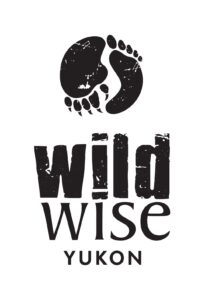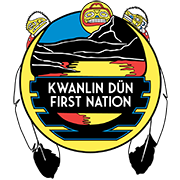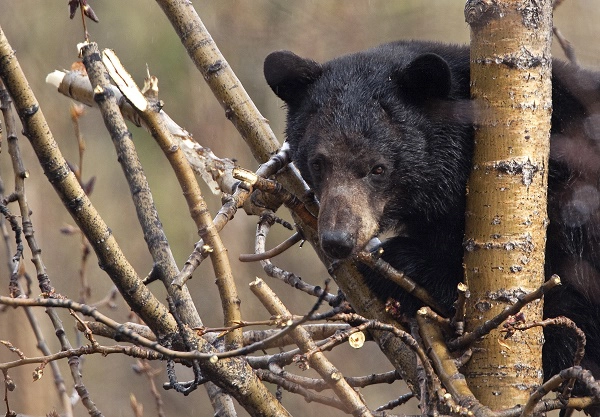Our Elders tell us bears are sacred. We respect them, and share the land, air and water with them. They are our spirit brothers and sisters. They are the protectors of the animal kingdom and they keep the land healthy. In respecting our grandmothers and grandfathers’ words, let’s do our part to keep this legacy alive and protect bears so we can all roam this great land together in harmony.
Travelling safely in bear country:
- Always travel with bear spray – and know how to use it. Instructional videos are online or call your Land Steward Officers for a demo.
- Carry bear spray in a harness on your body so you can get it out quickly. Do not carry in your backpack.
- Know the signs of bear activity. Example: dug up stumps and roots or rotting wood, scratches on trees, and scat.
- When travelling by bike on trails, slow down so you don’t surprise a bear and yourself.
- When walking on trails, travel in pairs or groups, and make noise.
- Pay attention and listen, do not wear headphones when on wilderness trails.
- Keep your dogs on a leash if not a trained bear dog.
- Practice good housekeeping, pack out what you brought in, including, apple cores, banana and orange peelings.
- Practice bear safety all year long, carry bear spray and continue taking bear precautions in the fall and winter.
What to do if you come across a bear:
- If you encounter a bear, back away slowly, talk to the bear (do not yell), and let the bear know you are leaving.
- If a bear charges, use your bear spray to deter it. Bear spray works best at very close range. It will not work farther than about 30 feet, and some brands, 15 feet. Read the instructions on the can and know what you are working with.
- If you see a bear and it hasn’t seen you, assess whether it is far enough away that you can carry on without disturbing it. If you are unsure, go back the way you came.
Managing attractants:
- Keep your camps and area around cabins clean of garbage, carcasses and fuel, yes fuel.
- When camping, store food in a bear safe container or in a vehicle. Never leave food or beverages on a table and do not store food in your tent.
- Cover your quads and snowmobile seats with plastic or tarps when not in use, seats are an attractant due to the formaldehyde in the vinyl covering.
- Keep garbage and compost in a bear resistant bin or locked building until garbage collection day, or until you can take it to the landfill. Do not stockpile garbage on your property.
- Electric fencing is a good way to make sure a bear can’t get your chickens, meat caches, smokers and other attractants. Call WildWise Yukon at (867) 335-5212 for more information about using electric fencing.
Hunting and Fishing:
- Share the river with the bears. Fish during the day and leave the river to the bears at night.
- Discard your bones and fish scraps back into the water away from your camp.
- If a bear is present, leave the area.
- Keep your smoke house clean and never leave unattended when in use.
- Hunt early, so you are not dressing your kill at night.
- If you find a bear kill site, leave the area, the bear is most likely close.
- When a bear and game opportunity are both present, do not shoot the game animal, chances are the bear has his sights on that animal, too. Shooting the game animal can cause the bear to be killed or you injured or worse!
- Promptly field dress a game animal after the kill. If possible, avoid opening the gut cavity until after you have salvaged all other edible meat. Removing the hide first and avoiding opening the gut cavity will help limit odors.
- Try to pack all the meat out in one load. If this is not feasible, place the remaining meat in game bags and hang from a tree, or cache them in an open area at least 100 yards from the kill site.
- When you are packing out game meat and have finished hunting for the day, make lots of noise to announce your presence to any bear in the area.
- Keep your meat out of reach of bears or cache the meat away from your camp with a clear line of sight between the camp and cache.
- Treat clothes soaked with blood or guts the same as any other attractant. Leave soiled clothes with the meat cache.
- Stay alert, avoid drugs and alcohol.
Acknowledgments:
KDFN Land Steward Officers work closely with Yukon Environment, Yukon Conservation Officers, WildWise Yukon and NGO’s to administer bear awareness campaigns, workshops, bear spray demos and bear studies within the traditional territory.
COVID-19:
Due to COVID-19, KDFN Land Steward Officers, Yukon Conservation and WildWise Yukon are not offering in-person bear spray demos until it is safe to do so. Sorry for the inconvenience at this time. For online video bear spray demos go to:
https://yukon.ca/en/stay-safe-bear-country#what-to-do-if-you-encounter-a-bear

Written and prepared by:
Brandy Mayes
Operations Manager
Heritage, Lands & Resources
Kwanlin Dün First Nation
Phone: (867) 633-7800 Ext. 144
Cell: (867) 336-3316
Email: Brandy.Mayes@kdfn.net
Karlie Knight
Natural Resources Manager
Heritage, Lands & Natural Resources
Carcross/ Tagish First Nation
Phone: (867) 821-4251 Ext. 8222
Cell: (867) 334-9128
Email: Karlie.Knight@ctfn.ca



